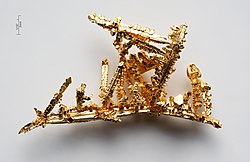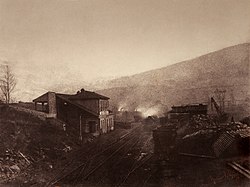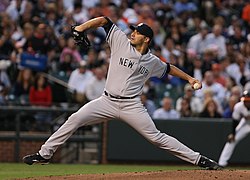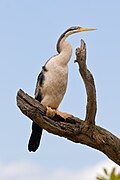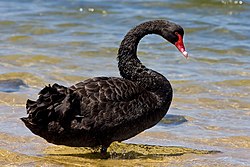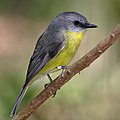 |
|---|
|
| ||
| Volume 5, Issue 37 | 14 September 2009 | About the Signpost |
|
| ||
| (← Prev) | 2009 archives | (Next →) |
|
| ||
|
| |
| Home | Archives | Newsroom | Tip Line | Shortcut : WP:POST/A |
|
| |
Grant structure, and more
Structure of Omidyar Network grant
The structure of the $2 million grant Omidyar Network has made to the Wikimedia Foundation (see previous Signpost coverage) has been made public. During an open meeting on IRC (full log) with the new members of the Wikimedia Foundation Board of Trustees, Matt Halprin, a partner of Omidyar Network and one of the new board members, said that the grant consists of $1 million in unconditional grants, $500,000 in matching funds for the next fundraiser, and $500,000 conditional upon meeting targets for global reach and global participation.
Sara Crouse, Wikimedia's Head of Partnerships and Foundation Relations, clarified further by email that:
we expect four disbursements of $500K each:
- $500K unconditional in short order
- Up to $500K in matching funds in early 2010 following the fundraiser
- $500K unconditional around this time next year
- $500K in spring of 2011 when targets are met
Wikimedia Executive Director Sue Gardner explained by email the reasons the specific targets for global reach and global participation rate are not being revealed publicly:
Basically, Omidyar had asked Wikimedia not to publish the target numbers -- e.g., the actual numeric target for global unique visitors. I gather that's standard practice for Omidyar, and I believe it's essentially for reasons of their flexibility.
For example, if we have a target of [x] [unique visitors], and we have an actual result of [x-5%] [unique visitors], Omidyar would want to reserve the ability to be flexible in its response to that. For example, Omidyar might choose to award Wikimedia the grant regardless of our failure to meet the target. But it might not necessarily want that known by its other grantees, presumably so they wouldn't point to it in the event that they fail to meet their own targets. Basically, my understanding is that Omidyar would rather preserve its flexibility to make internal decisions as it sees fit, rather than feeling constrained by expectations or precedent. It also might want the flexibility to refine the targets with us: for example, as we go through the strategy planning process, the participation metric might be refined over time – and it might not want to create the expectation with other grantees that targets are highly flexible and can be regularly revisited.
Our original request to Omidyar was to publish everything – that's our preference with all grantmaking institutions, and for example that's what we did with the Hewlett grant [of $500,000, announced last month]. But, Omidyar told us it's their standard practice for internal reasons not to publish targets, and that they would be okay with us publishing the measures (e.g., global
unique visitors monthly) and the actuals (obviously, which we would and will do anyway), but not the target numbers themselves. We wanted to respect that they had arrived at that decision for reasons that are important to them, and so we agreed. I personally don't see why it matters to anyone what the actual numbers are, particularly since there are no special "activities" associated with them that will cost money, and since we developed them ourselves, and they are consistent with our general goals, which are (as [new Wikimedia board member Samuel Klein (User:Sj)] I think said in the [open meeting on IRC]) pretty unsurprising and non-controversial. But I respect that other people do seem to feel differently, and I understand that secrecy -in and of itself- can create suspicion. Upshot though: the target numbers themselves IMO are not super-important. IMO what's important is that we're engaged in good discussion with Omidyar about our goals and mission and strategy, and I hope that will be really helpful to us.
Gardner also addressed concerns voiced by some Wikimedians—including Wikimedia critic Gregory Kohs (User:Thekohser)—over the appearance that Omidyar Network had "bought a seat" on the Wikimedia Foundation board with the $2 million grant. Kohs researched earlier grants made by Omidyar Network, showing that Halprin or others from the organization have frequently taken places on the boards of other non-profits to whom Omidyar Network has made significant grants. To the question of whether a seat was bought, Gardner said:
In my opinion, the answer is no. To frame it as "selling a board seat" implies that the Wikimedia Foundation would not have invited Matt to
join the Board if it hadn't been for the grant, and it implies that anyone offering two million dollars would have gotten a Board seat. I don't think the former is necessarily true, and the latter is definitely not true.
The Wikimedia Foundation Board and I had many conversations about Matt's skills and background and personal style, and it was generally agreed that he would bring a lot to the Board. Matt's seat is not an institutional seat for Omidyar Network, offered in exchange for a grant. It's an individual seat, offered because we felt the Board, and Wikimedia generally, would benefit from his personal engagement with us. It has no special privileges associated with it: Matt's a Board member like any other.
The question could be asked: would the Board have offered Matt a seat in the absence of a broader engagement with Omidyar Network, including the grant. That's impossible to answer with real certainty, because we met Matt in the context of discussions about a grant: we did not know him before those conversations began. Personally, I think it's entirely possible that had we known him previously, he would have been invited to join the Board on his own merits, completely absent the other conversation. (As I think [ BirgitteSB ] said on foundation-l, if the [ Wikimedia board Nominating Committee ] had found him first, she would have supported him as a candidate.) But it's impossible to know what might have happened, and I think it would be a little disingenuous for us to pretend we do know, or could know.
Personally, I think framing the question as "selling a seat" implies a quid pro quo -- that Omidyar Network "got" a Board seat in exchange for a grant. And I can't see how Omidyar Network benefits from Matt being on our Board, apart from the satisfaction of advancing their own social mission, to help people improve their lives and enable them to engage more productively with each other. I would frame the whole thing entirely differently: I think we are lucky to have found Omidyar Network, I am happy that we've developed a engagement with them, and I am comfortable that it will be productive and useful for Wikimedia in all aspects. I think Matt will be a fabulous Board member, and the funding will help us advance our mission, and we will also benefit from the other advice and expertise that Omidyar Network is able to offer us. So I think it's all good.
Briefly
- A discussion is ongoing about how to improve the mailing list Foundation-l, which some participants say is too high-traffic and is dominated by just a few people. There is a Meta page for collecting ideas at m:Improving_Foundation-l.
- The weekly Strategic Planning office hours will be held on IRC at Tuesday September 15, at 20:00 UTC, in the the #wikimedia-strategy channel.
Milestones
So far in September, the following project milestones were reached.
- The Simple English Wikipedia has reached 56,000 articles.
- The Malayalam Wiktionary has reached 12,000 entries.
- The Vietnamese Wikipedia pushes past the 100,000-article mark with "Shenyang J-11", part of a series of articles on military aircraft by Nalzogul. Around 5% of the Vietnamese Wikipedia's articles were originally created by bots.
- The Serbian Wikipedia has reached 90,000 articles.
- The Thai Wikipedia has reached 50,000 articles.
- The Simple English Wiktionary has reached 11,000 entries.
- The Czech Wikisource („Wikizdroje“) has reached 10,000 pages with the 5th book of the Czech translation of Homer's Iliad.
- The Wikimedia Commons has reached 5,000,000 files.
Another milestone was reached in the English Wikipedia, with more than 500,000 articles now providing geographic coordinates based on the {{coord}} template, according to the template transclusion counter. WikiProject Geographical coordinates, however, knows of at least another 169,000 articles which ideally should have coordinates; these are listed in the category tree Category:Articles missing geocoordinate data by country. See Wikipedia:How to add geocodes to articles for more information.
Reader comments
Reporter's kidnap blackout affects Wikipedia, and more
Another reporter kidnapping subject to media, Wikipedia blackout
The Huffington Post reported that the recent kidnapping of New York Times reporter Stephen Farrell in Afghanistan was subject to a media blackout until his rescue, similarly to the earlier response to the kidnapping of David Rohde. As in the case of Rohde, anonymous editors tried to update the reporter's Wikipedia article with news of his kidnapping; the information was removed and the article protected until his rescue several days later. As with the Rohde article, information removal was explained as enforcement of the biographies of living people policy, although in discussions on the article's talk page and the WikiEN-l mailing list some Wikipedians argued that several of the cited sources—such as this short article from the Iranian news network Press TV and a subsequently pulled article from IrishCentral—did in fact meet Wikipedia's standards for reliable sources. The article was semi-protected on 6 September with the explanation "issues with BLP and reliable sources" and a reference to an OTRS ticket.
New York Times blogs about Wikipedia-as-news
"If journalism is the first draft of history," asks a story on the New York Times blog The Lede, "what is a Wikipedia entry when it is updated within minutes of an event to reflect changes in a person’s biography?"
The story discusses Wikipedia's rapid response to U.S. Representative Joe Wilson's outburst of "you lie!" during Barack Obama's speech to joint session of Congress on 9 September, focusing on the back-and-forth on the article's talk page over whether and how the outburst should be covered and what sorts of contextual information on who lied about what ought to be included.
Briefly
- The satirical news site The Onion ran an American Voices feature (mock vox populi interviews) with reactions to the news of that most Wikipedia contributors are male (see gender statistics news item in last week's Signpost).
- Wikia, which has been undergoing exponential content growth recently, says that they have achieved profitability.
- Wikimedia Italia has been sued by an Italian MP and his son for the content of the Wikipedia articles regarding them. They are seeking 20 million euros in damages, as reported by the association president Frieda Brioschi. Gianfranco has written a summary of the situation in English.
Reader comments
Discussion Reports and Miscellaneous Articulations
The following is a brief overview of new discussions taking place on the English Wikipedia. For older, yet possibly active, discussions please see last week's edition.
No fair! Users beware
[since] Wikipedia:Non-free content criteria does not clearly and concisely describe the circumstances (if any) under which non-free text is permissible in userspace. A change that I would support, and that I believe is reflective of current practice in all cases except the matter recently at MFD, would expressly permit short, one or two sentence quotations of non-free prose in userspace, but would disallow longer excerpts (except when present in drafts of articles, consistent with existing standards for non-free text in mainspace.) Since poetry, song lyrics, or similar material present exceptional copyright concerns, and could be problematic if so much as a single line is quoted, it's probably best to avoid any copyrightable lengths of such non-free content in userspace altogether.
However, User:Ikip argued passionately against this change, saying "fair use has been interpreted to include anything around 300 words, but it is purposeful left vague. If there is no lawsuit about this, and to my knowledge there has never been a lawsuit. Therefore, future self-promoted copyright police, the vast majority with zero legal education, should not dictate to other editors what should or should not be on their user page. This will cause a hell of a lot of contention for vague slippery slope arguments."
User:ViperSnake151 offered a historical context on the forming of the current guidance to argue against the change:WP:NFCC only applies to media files. I think I may have suggested saying "non-free media" within NFCC itself just to make it increasingly obvious that WP:NFCC only applies to files, and that text is judged under the "normal" fair use clauses, and not the stricter NFCC standards. To end this, I think the lead of NFCC should instead say "The fair use provisions of United States law allow the use of brief verbatim textual excerpts from copyrighted or non-free media, properly attributed or cited to its original source or author, within the English Wikipedia. Non-free media, which encompasses copyrighted images, audio and video clips, and any other media files that lack a free content license, must also comply with the 10 following criteria: [...] There is no automatic entitlement to use non-free content on Wikipedia, editors should consider whether the use of non-free context is appropriate for its planned context before adding it to Wikipedia." Our rules on fair use of text have never been as strict as with images, so we should stay along that idea, but still be careful.
User:Lar pitched in to support a change. Mindful to avoid "a repeat of the Userbox wars, in which a big hunt is carried out for every single one line quote in user space in order to remove it ... I'd like to see the NFCC clarified to be explicit that short (one or two line) quotes of prose are OK. ... I think we need this clarification, the MfD showed us that the way the NFCC is written now leaves ambiguity that caused issues. The only question remaining to me is exactly what the best wording change should be."
The recent death of Wikinews
At Template talk:Recent death, a suggestion was made by User:Brian McNeil to add "an additional, optional, parameter such as 'wikinews_obituary='. This would be to link to an appropriate obituary article over on Wikinews." The addition was made boldly by User:Cirt, before the bold, revert discuss cycle was initiated. After discussion and what many believed to be a consensus, Cirt again added the code, amended per discussion, only to be reverted again by the only dissenter, User:Flowerparty. At this stage User:Cenarium joined the discussion, offering the opinion that "We should definitely not link to an obituary in a lead template". However, User:Gosox5555 supported the proposal, noting that "I've been reading the arguments and it seems like a good idea." User:TheGrappler felt that policies and guidance did not bar the addition of the code, and summarised relevant guidance to show why.
Deprecating the future
A centralized discussion regarding the utility of {{future}} and related templates initially generated a consensus to deprecate these templates. However, despite best efforts the discussion did not reach all users of the templates. The attempted removal of these templates from articles caused further discussion, and the nature of that debate caused User:Drilnoth to request an RFC on the issue: "During this discussion, please be willing to try and find some middle ground. Perhaps changing the guidelines on the use of the templates, or changing what they actually say, rather than an all-or-nothing keep-or-delete."
User:Equazcion felt the templates should be deprecated, because they believed "the use of these templates stems from an understandable compulsion to tag articles based on categories." However, User:TheGrappler pointed out there were viable uses for these templates, with a lenghty post that was summarised to point out that "future events articles have different verifiability concerns to most others, and at least in certain topic areas appear to have an unusually high risk of becoming inaccurate despite appearing misleadingly up-to-date". User:Peregrine Fisher offered a potential solution to try to guarantee wide participation: "Why not just do a TfD?"
Polling
A round up of polls spotted by your writer in the last seven days or so, bearing in mind of course that voting is evil. You can suggest a poll for inclusion, preferably including details as to how the poll will be closed and implemented, either on the tip line or by directly editing the next issue.
- Polling has been spotted at the village pump on the issue of whether to advertise for article editors. Although initiated as a discussion by User:Peregrine Fisher, who commented that "(w)e should do adds that emphasize that you can edit this article, with some sort of advertisement. [sic]" Most respondents have latterly opted to offer their opinion a style similar to that used for polling. Whether this is an actual poll or a discussion which bears a typographical resemblance to a poll is unclear at this stage.
- Similarly, at the village pump discussion on adding a different color to internal links for links to stubs, polling has developed through discussion.
- Further outbreaks of polling can be seen elsewhere at the village pump; Current weather asks whether we should add a technological feature which would allow articles on cities to display the current temperature in that city, and Main page feature suggestion suggests having one article per day displayed on the main page near the Featured Article as that given day's "Article that needs your help".
Deletion round-up
Your writer has trawled the deletion debates opened and closed in the last week and presents these debates for your edification. Either they generated larger than average response, centred on policy in an illuminating way, or otherwise just jumped out as of interest. Feel free to suggest interesting deletion debates for future editions here.
Articles
- Does the Barack Obama Joker poster merit its own article?
- Staying with the United States' President, should Barack Obama speech to joint session of Congress, September 2009 be kept, deleted or merged?
- A number of Latvian football (soccer) players have been nominated for deletion on grounds of notability at Wikipedia:Articles for deletion/Rihards Gorkšs
- A number of articles related to herbs (no, culinary) have been nominated at Wikipedia:Articles for deletion/Herb usage 2 because it is felt they create a walled garden
- A number of articles in the form "30th century (Hebrew)" have been nominated for deletion as having no discernible encyclopedic content at Wikipedia:Articles for deletion/30th century (Hebrew)
- Is Fanne Foxe pretty much the definition of notable for one event?
- This weeks lists at AFD: List of United States Senators in the 112th Congress by seniority, List of Governors from Delaware, List of Rookie of the Year awards by team, List of Belgian supercentenarians, List of Digimon cast members, List of micronations, List of hospitals in Bali, List of panels making life or death decisions, List of New York county name etymologies and List of countries by percentage of population over 65 years of age
- The notability of articles on Eugene F. Lally, E Squared (novel), The University of Chicago Band, Armageddon at the mushroom village, American Home, Assassination of Jim Pouillon, Jef Van Campen, Doug Cox and Zombietime is discussed in the respective deletion debates.
- This week's too long didn't read award goes to Wikipedia:Articles for deletion/Z-Clan.
- Mentioned in the last two week's round-up, debate on Nan You're a Window Shopper has been closed as merge
Categories
- Should Category:Articles lacking sources be merged to Category:Articles with unsourced statements or renamed to Category:Articles with no sources. See debate
Files, templates, redirects and stubs
- A debate has begun over whether File:Pitofdespair-Harlow.jpg meets our criteria on using non-free material
- The deletion debate of File:NewBungieLogo.png focuses on whether a PNG version of a file is more in keeping with policy than a vector version
- Is Template:Infobox fictional artifact unnecessary or not?
- Does Template:Uw-spellcheck promote robotic behaviour or not?
- Is Template:High traffic still of use to the project?
Deletion review and miscellaneous
- After a listing at Deletion review, User:Stevertigo/Obama and accusations of National Socialism has been relisted for deletion at miscellany for deletion over concerns that it is impossible to write a neutral article on the subject
- Is User:William M. Connolley/For me/Misc arbcomm-y stuff acceptable or does it constitute an attack page?
Briefly
- There is discussion regarding further limiting the use of YYYY-MM-DD date formats across Wikipedia at the style manual
- After discussion at Wikipedia talk:Notability, an attempt to merge four notability guidelines into one is being made at Wikipedia:Notability (published works)
- Discussion continues on the optimum length of a lead section at Is there a consensus forming?
- A suggestion has been made to merge style guidance on dates and numbers into the main manual of style, see MOSNUM needs to be merged into MoS
Requests for comment
Thirty-six Requests for comment have been made in the week of 6–13 September:
- Wikipedia talk:Naming conventions 13 September 2009
- Wikipedia talk:Notability (criminal acts) 13 September 2009
- Talk:Conrad Murray 13 September 2009
- Talk:2010 in heavy metal music 12 September 2009
- Talk:Joe Wilson (U.S. politician) 12 September 2009
- Talk:Astrology 11 September 2009
- Talk:Liberalism 11 September 2009
- Talk:Kitchen Nightmares 11 September 2009
- Talk:Glenn Beck 11 September 2009
- Talk:Fulton J. Sheen 10 September 2009
- Talk:Archie Manning 10 September 2009
- Talk:Conversion therapy 10 September 2009
- Talk:Scars on Broadway 10 September 2009
- Talk:Great Depression 10 September 2009
- Talk:Soad Hosny 9 September 2009
- Talk:Tamer Hosny 9 September 2009
- Talk:Anwar Wagdi 9 September 2009
- Talk:People-Centered Economic Development 9 September 2009
- Talk:Denny's 9 September 2009
- Talk:Albanian nationalism 9 September 2009
- Wikipedia:Centralized discussion/Deprecating "Future" templates 9 September 2009
- Wikipedia talk:User categories 9 September 2009
- Talk:Paul LaViolette 8 September 2009
- Talk:Islamofascism 8 September 2009
- Talk:Islam and antisemitism 8 September 2009
- Template talk:Talkheader 7 September 2009
- Talk:Ulster Defence Regiment 7 September 2009
- Talk:Rogiet 7 September 2009
- Talk:Terror bombing
- Talk:Jägermeister 7 September 2009
- Talk:Information Technology Infrastructure Library 7 September 2009
- Talk:List of HTTP status codes 7 September 2009
- Talk:System of a Down 7 September 2009
- Talk:Catholic Church 7 September 2009
- Template talk:Talkheader 7 September 2009
- Wikipedia:Village pump (policy) 7 September 2009
Reader comments
WikiProject Video games
The Video games WikiProject was founded in February 2004 by Greyengine5, who left Wikipedia later that year. Over the subsequent years, the project has become one of Wikipedia's largest—with nearly 1,300 members—and one of its most successful, with 125 featured articles, 33 featured lists, and 340 good articles, out of a total pool of more than 23,000 articles. It has also grown to include 28 task forces covering smaller topics, one of the largest such groupings on Wikipedia.
Today, we've asked five members of the project (David Fuchs, Guyinblack25, Izno, MuZemike, Nifboy) to answer a few questions about their experiences there:
1. What aspects of the project do you consider to be particularly successful? Has the project developed any unusual innovations, or uniquely adopted any common approaches?
- Izno: Not to rap on any of the other popular culture WikiProjects, but I am of the opinion that Video games (and its members in general) is the one of the most balanced now with respect to WP:Notability. What I mean is that we realize as VG editors that sometimes, you gotta' cut the articles down to get to the meat of the topic. Certain editors informally (and successfully, imo) help guide the project in this matter, I would say.
- MuZemike: If you look at our extensive lists of Good articles and Featured content, that speaks volumes as to the quality of articles and the dedication of a lot of the members in ensuring accurate, high-quality content. It is also, incidentally, how I got started editing Wikipedia myself over a year and a half ago. We also maintain our own list of newest video game articles and maintain a centralized deletion page, peer review process, new article request process, images department, and reference library (especially for those hard-to-find print sources for many older video games). There are also 26 currently-active task forces as well as 11 other WikiProjects that fall under or overlap with the scope of the video games project. As a result, and as what David explained in one of the below questions, one particular aspect that differentiates this project from others is that we have our own inactive project cleanup department, which assists in consolidation of old projects and task forces that are inactive. Recently, we have developed an informal, lightweight RfC process in which video game talk pages and other talk pages can elicit comment from the members of the project as a whole.
2. Have any major initiatives by the project ended unsuccessfully? What lessons have you learned from them?
- Nifboy: Pokémon. Specifically, the Pokémon Adoption Center, which was a valiant attempt to clean up hundreds of articles and properly source them, reaching two Featured Articles at its peak. Then our article standards rose, culminating at FAR and eventually merging the whole lot of them into lists. It's something of a cautionary tale against pouring effort into excessive detail, and we learned a lot about what sorts of articles hold up under close scrutiny and which don't. I don't like the current solution of two dozen lists, but I'm not sure anyone knows what to do with them, if anything can be done.
- Guyinblack25: To be honest, I think our major shortcoming is that we're just a bunch of gamers (or "video game enthusiasts" as we say in articles). Like every other editor, we're volunteers that only have so much free time to dedicate. In that respect, we tend to let smaller and midsized initiatives lose momentum. So while we've had some good ideas get off the ground, they tend to become inactive after a month or so. The lesson there is that we can't let our attention be divided too much. Even if a really good idea comes up, it may be better to put it off until we can focus on it properly.
3. Video game topics in Wikipedia have sometimes been criticized as being too concerned with trivia and plot details, and there have occasionally been efforts to have significant numbers of these articles deleted. Do you believe such criticism is justified, and how has it affected the project? Have you developed any special methods for dealing with such issues?
- Nifboy: The Video Games project has a unique perspective because there is often so much else to talk about other than just the plot. Gameplay almost always gets top billing on any article, and we established pretty early on that we didn't want to be GameFAQs. So in some ways the balancing act is easier because there's always content to balance against, even before the article has proper reception and development sections. On the other hand it can be problematic when a game has little or no plot, and editors trying to flesh out the article start extrapolating from whatever nonsense justification got written into the manual. Sometimes two paragraphs of plot is too much.
- Izno: Perhaps previously, this was the case, but I can see these issues being a problem endemic to Wikipedia's 'popular culture articles'; I see trivia and plot as an issue in other articles outside the VG domain (particularly in poorly done films and TV articles, but you'll also rarely see it in a poorly done math article). To say the least, I think VG has made a massive effort to work this particular kink out of the VG articles. WP:VGSCOPE is very helpful in this regard, as it quite easily locates what the project as a group believes to be inappropriate.
- MuZemike: That depends who you talk to. Some do indeed criticize video game topics for having too much trivia and overdetailed plot. However, others similarly criticize the same topics for not having them. Perhaps this is just a part of the ever-ongoing deletionism/exclusionism/inclusionism wars that take place on and off-wiki. However, I put another perspective on this. Wikipedia is pretty much the first encyclopedia to contain extensive encyclopedic content regarding video games and gaming. Other topics like military history, philosophy, or the Classics have been in pretty much every encyclopedia since Diderot first published the Encyclopédie and likely before that as well. In addition, video gaming has only been a part of history and culture for the past 40 years roughly. People will still go back and forth as to what material belongs in video game topics in an encyclopedia, while at the same time keeping in mind that we shouldn't limit ourselves on what video game topics should be covered as Wikipedia is not paper. Going full circle with verifiabliity, it comes down to "what can we write with the accurate sources given" and "how do we organize such content"? We don't take sources from postings on Internet forums, self-published content, or blogs that some fan has created on whims. As with your topics on military history, philosophy, or the Classics, reliable fact-checked sources are critical in writing accurate quality content on the encyclopedia. The same should apply to video game articles. And if we're to get respect from both sides with regards to video game content, we must keep this in mind.
4. Your project has partially adopted the task force model for subsidiary groups. Do you find this model to be effective? How might it be improved?
- David Fuchs: As with any task force, the successfulness of an offshoot groups depends on the people crewing it. In some cases task forces are too hastily started and interest wanes quickly. Other times sister wikiprojects are decided to be better off as task forces. To address those issues, we started an Inactive project cleanup in early 2008 which has since resulted in a more focused division of tasks and projects. Generally, larger subprojects and task forces for bigger game franchises (WikiProject Halo, for example) tend to thrive, but occasionally a small group of hardcore fans can dramatically improve quality on obscure and neglected topics.
- Guyinblack25: Right now, I'd say the model is not ineffective; we've had mixed success with it. Some task forces have such a small number of active members that they lack the capacity to be as effective as they could be. But the ones that do have a good sized member base have done great work in their scope. The only improvements that come to mind are consolidating smaller task forces together and putting a roll call process in place. I think that would foster an environment that encourages collaboration more by showing editors that there are others within the project that want to work in similar areas.
5. What experiences have you had with the WikiProjects whose scopes overlap with yours? Are they useful collaborators, or do you feel that they have little to offer you? Has your project developed particularly close relationships with any other projects?
- David Fuchs: As part of a way to hopefully invite broader feedback about video games articles and network with other projects, WikiProject Video Games has partners with WP:MILHIST for peer reviews. Users for either project can list their articles for review and can leave a talk page notice alerting people that a partner peer review is open. This not only alerts others to flock to a review, but I think that each project has something to offer the other--MILHIST chaps can tell us gamers what parts of the gameplay section are too inaccessible, while we can do much the same in pointing out technical terms for weapons, etc. that the casual reader would get bogged down in.
- MuZemike: I've had some very positive interactions with the Anime and Manga WikiProject, especially when colloborating with other users there for Good article nominations and reassessments. A lot of the articles that I've been working with in that regard have been visual novels. They have been very helpful in improving several old Good articles and getting them up to the current standards and quality required of a Good article. In my other reviews, WP:ANIME members have been very receptive to feedback that I give them. I kind of say that we and WP:ANIME are in a way similar because we cover similar topics and types of articles.
6. Your project was last interviewed 18 months ago. How has your project changed since then?
- Guyinblack25: Expanding on what the others have stated above, a lot of the changes since then are how members interpret and enforce Wikipedia's policies and guidelines. Our guidelines and assessment practices have undergone significant changes. Several lengthy discussions involving numerous project members have occurred that resulted in the language becoming more clear and in line with Wikipedia's. This in turn helps veteran and new members be on the same page when editing articles. The inactive cleanup also helped consolidate resources (assessing, peer reviews, discussions, etc.) that were split among several WikiProjects. I believe our project has grown in active membership and become more focused as a result, which is a great asset when trying to improve such a large scope of articles.
- MuZemike: Well, a few WikiProjects are no more, more notably Nintendo, Sega, Warcraft, and more recently Final Fantasy – all of which are now task forces under the Video games project. Is that a bad thing? For me, not necessarily. When I helped transition WP:NIN from a WikiProject to a task force about a year ago, my feeling was that things would be less structure and more freeform – basically less things to worry about. Some benefits of such taskforcification have been the change to one central assessment scheme rather than two redundant and identical assessment schemes and the capability for a fresh start for a project. After updating our membership a couple of times, the Nintendo task force have increased from 27 members to 43 (though the task force is currently updating its membership, so that number may change).
7. What is your vision for the project? How do you see the project itself, as well as the articles it shepherds, developing over the next year? The next five years?
- David Fuchs: Video games in general and video games articles on Wikipedia in particular have always had something of a bad rap for being poorly written, sourced, or thought out in general. My hope is that we can address those (often valid) issues and work towards every-increasing quality articles. Steps like the overhaul of our Reliable Sources page reflect an increasing attention to the values of scholarship. Keeping up and improving our articles is always the first priority.
- Guyinblack25: David hits the big issue right on the head. Improving the image of video game related topics by improving their quality will always be an important goal. Another goal is the improvement of how video game history is recorded. A lot of reputable sources provide some pieces of history about a game, series, genre, or developer. But Wikipedia gives us the opportunity to compile all those pieces into a complete picture that's available to everyone. We've made good progress in improving the quality of historically important articles as well as popular ones, and I believe we can continue that momentum. Ultimately, I would love to see the day when we've improved our articles so much that someone wanting to learn about video game history checks Wikipedia first.
Reader comments
Approved this week
Administrators
Two editors were granted admin status via the Requests for Adminship process since last report: Jafeluv (nom) and MZMcBride (nom).
Featured pages
Thirty-two articles were promoted to featured status since last report: König class battleship (nom), Quiriguá (nom), Banksia prionotes (nom), Electron (nom), Unification of Germany (nom), 1968 Illinois earthquake (nom), Rudolf Caracciola (nom), Ernie Toshack with the Australian cricket team in England in 1948 (nom), Neil Harvey with the Australian cricket team in England in 1948 (nom), Tom Swift (nom), Chicado V (nom), Blackburn Olympic F.C. (nom), Turok: Dinosaur Hunter (nom), California's 12th congressional district election, 1946 (nom), Yukon Quest (nom), Ravenloft (module) (nom), Cosmo Gordon Lang (nom), Chinese classifier (nom), Fredonian Rebellion (nom), North by North Quahog (nom), North Island (Houtman Abrolhos) (nom), Cyclone Orson (nom), Icos (nom), Polyozellus (nom), Derfflinger class battlecruiser (nom), A Weekend in the City (nom), Christopher Smart's asylum confinement (nom), Joe Hewitt (RAAF officer) (nom), Wish You Were Here (Pink Floyd album) (nom), Postman's Park (nom), The Covent-Garden Journal (nom) and Battle of Grand Port (nom).
Eight lists were promoted to featured status since last report: Santigold discography (nom), IWGP Tag Team Championship (nom), List of Governors of West Virginia (nom), List of tablets on the Memorial to Heroic Self Sacrifice (nom), Timeline of the London Underground (nom), List of Spanish football champions (nom), List of Medal of Honor recipients for World War I (nom) and List of teams and cyclists in the 2009 Giro d'Italia (nom).
Three topics were promoted to featured status since last report: Star Wars: Jedi Knight titles (nom), Derfflinger class battlecruisers (nom) and Lists of Victoria Cross recipients by campaign (nom).
No portals were promoted to featured status since last report.
The following featured articles were displayed on the Main Page as Today's featured article since last report: Polish culture during World War II, Rock Springs massacre, Cochineal, Khan Noonien Singh, Archie Jackson, Norman Birkett, 1st Baron Birkett, Amchitka, Crush, Cædwalla of Wessex, Virginia Eliza Clemm Poe, Diocletianic Persecution, Battle of Edson's Ridge, Her Majesty's Theatre and Linezolid.
Former featured pages
Twelve articles were delisted since last report: Stanisław Koniecpolski (nom), Douglas Adams (nom), Baby Gender Mentor (nom), Yuan (surname) (nom), Sequence alignment (nom), Franklin B. Gowen (nom), Médecins Sans Frontières (nom), Louisville, Kentucky (nom), History of New Jersey (nom), Norman Borlaug (nom), Final Fantasy IV (nom) and Thomas Pynchon (nom).
Two lists were delisted since last report: List of 1888–1889 New Zealand Native football team matches (nom) and List of WarCry band members (nom).
No topics were delisted since last report.
Featured media
The following featured pictures were displayed on the Main Page as picture of the day since last report: Camera obscura, Fiddler beetle, Japanese Instruments of Surrender, Damage from Sayre Fire, Penitentery at Port Arthur, Social dance, William McKinley, Child laborers, Wreckage of 1900 Galveston Hurricane, Hypericum calycinum, Asilidae, Memorial for September 11 attacks, Jacqueline Kennedy, the Singel and Andromeda Galaxy.
Two featured sounds were promoted since last report:
|
| 1892 – Werther: "Va! laisse couler mes larmes" | (nom) |
|
| Field cricket | (nom) |
Two featured pictures were demoted since last report: Arizona Cap Canal (nom) and Dmitry Medvedev and Vladimir Putin (deleted and delisted as copyvio; nom).
Thirty-seven pictures were promoted to featured status since last report and are shown below.
-
Photograph by Gustave Le Gray
-
Library of Bronx Community College
Reader comments
The Report on Lengthy Litigation
The Arbitration Committee opened one case this week, and closed two, leaving three cases open.
Requests for arbitration
A new request concerning disputes on the "Asmahan" article was filed by Supreme Deliciousness, who alleges that Arab Cowboy has edited the article disruptively. The Committee is in the process of accepting the request to examine the behavior of all parties.
A request concerning the conduct of Pigsonthewing, filed by Erik9 last week, is being declined as premature.
Open cases
The Speed of light case was opened this week. The case was filed by Jehochman, who cited concerns about "tendentious editing and disruption" by a large number of editors on the "speed of light" article. Unusually, arbitrator Cool Hand Luke, who is slated to draft the decision in the case, has directly asked the parties "what resolution [they] would like to see from this process, and what (if any) concessions would [they] be willing to give to achieve that end?". Other workshop proposals have been submitted by a number of editors. A draft decision is expected by 30 September.
The Noloop case entered its fourth week of deliberations. The case involves mutual allegations of disruptive conduct by several parties, and is expected to address the conduct of all the editors involved. Evidence has been presented by several editors, and one of the parties, Noloop, has posted a statement that he does not intend to participate in the proceeding, but no drafting of proposals has yet taken place. A draft decision, to be written by arbitrator Carcharoth, was expected by 13 September, but has been delayed.
The Lapsed Pacifist 2 case also entered its fourth week of deliberations. The filing editor, Steve Crossin, alleges that Lapsed Pacifist has engaged in advocacy, original research, and edit warring, as well as various other improprieties, over a wide range of articles. Lapsed Pacifist has so far refused to enter a statement or respond to the allegations, and a temporary injunction prohibits him from editing articles related to the Corrib gas project for the duration of the case. No arbitrators have commented on the evidence or workshop proposals at this time; a draft decision, to be written by arbitrator Wizardman, was expected by 11 September, but has been delayed.
Closed cases
The Abd-William M. Connolley case was closed this week. The case had been filed by Abd, who alleged that William M. Connolley had improperly banned him from the "cold fusion" article; William M. Connolley denied these allegations, and stated that Abd's conduct had been inappropriate.
The Committee found that Abd had engaged in tendentious editing on the article, and had violated a prior arbitration remedy (from the Abd and JzG decision), but that William M. Connolley had "misused his administrator tools by acting while involved". The remedies impose discretionary sanctions on the article; ban Abd from the project for three months, and from the cold fusion article for one year; and remove William M. Connolley's administrator status. The Committee also urged the community to "engage in a policy discussion and clarify, on an appropriate policy page, whether and under what circumstances an administrator may direct that a given editor is banned from editing a particular page or on a particular topic (outside the context of arbitration enforcement), without first attaining a consensus for the ban on a noticeboard, and if so, how such bans are to be reviewed".
The 194x144x90x118 case was also closed. The filing editor, Erik9, had alleged that 194x144x90x118 had engaged in a variety of disruptive conduct, despite an RFC on the matter; 194x144x90x118 refused to respond to the allegations. The Committee found that 194x144x90x118 had engaged "soapboxing on talk pages, personal attacks, edit warring, and a lack of a desire to abide by policy", and has banned him from the project for one year.
Clarifications, amendments, and motions
A request for clarification of the Lyndon LaRouche 2 decision was filed by Leatherstocking, who was warned by SlimVirgin that he could be subject to sanctions pursuant to it. Most of the Committee has not yet responded to the request.
The Committee adopted a motion that terminates the six-month ban imposed on Locke Cole as part of the Date delinking decision. The motion provides for a reinstatement of the ban should Locke Cole be blocked for edit-warring, and does not alter the other editing restrictions affecting him.
Reader comments
Bugs, Repairs, and Internal Operational News
This is a summary of recent technology and site configuration changes that affect the English Wikipedia. Some bug fixes or new features described below have not yet gone live as of press time; the English Wikipedia is currently running version 1.46.0-wmf.15 (8aa419e), and changes to the software with a version number higher than that will not yet be active. Configuration changes and changes to interface messages, however, become active immediately.
Bots approved
Three bots or bot tasks were approved this week, including:
- SmackBot XVII, for substituting existing uses of {{lifetime}}, which may become subst: only.
- SDPatrolBot 3, for the adjustment of CSD tags
Also approved was Porchcropbot, an alternate account. There are a number of open discussions, including one that would involve the mass addition of material to a number of articles from a database. Anyone is free to comment.
Bug fixes
New features
- Development work is underway to add support for TIFF files in MediaWiki — something that is especially important for image restoration work. Along with TIFF support, there will be improved handling of PDF and DjVu files. [1]
- Edits with user/IP suppression are now marked. (r56234, bug 20470)
Reader comments

